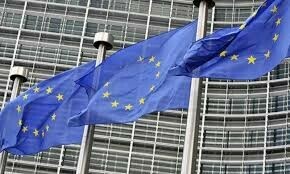
Prof Dr Halil Toker, country director of the Yunus Emre Institute Turkish Cultural Centre in Pakistan, has been pivotal in promoting Turkish culture and language in Pakistan and Urdu language, literature as well as Pakistani culture in Turkey. He has authored more than 50 books and over a hundred scholarly articles on Urdu language and literature, Kashmir problem and Pakistan-Türkiye relations.
Dr Toker has served as the chairman of Urdu Department, Istanbul University, Türkiye, director of the Oriental Research Centre at Istanbul University, head of the Urdu Board of Diyanet Islamic Encyclopaedia and a member of the board for research on Muslim minorities. He is a recipient of Sitara-i-Imtiaz, Allama Iqbal Award from the European Urdu Writers Society (London), Fakhr-i-Urdu Award from the Urdu Markaz International (Los Angeles) and many more awards from different countries. Dr Toker sat down with Dawn and spoke about his love for Urdu language and his contribution towards its promotion.
Q: How did you develop such a deep affinity for Urdu?
A: In my childhood, and I speak of 50 years ago, our mother would tell us history in the form of stories. At that time, I thought those stories were just fictional tales but later realised each story was rooted in fact. Back then, she would tell us of how our Pakistani brothers came to our aid and how they fought alongside in battles. As a five or six years old, these stories captured my imagination. Then we were also exposed to Indian films, which were entirely dubbed in Turkish, but the songs were in Urdu, not Hindi. I would hear these songs and say to myself that when I grow up I would learn this language.
There is also a lot of love for Pakistan in Türkiye. For example, under President Ziaul Haq, Pakistan sent a children’s troupe to perform on April 23 which is Children’s Day in Turkiye. The group performedJeevay Jeevay Pakistanwhich people loved. Even now, when Turkish people over 40 years of age meet Pakistanis, they sayJeevay Jeevay Pakistan, and this has a great impact on people.
Q: Was it easy to learn Urdu?
A: In Türkiye, when we sit for our higher education exams, our grades determine what professions we can pursue. I had studied in a technical school and it would have been easy for me to pursue engineering but I loved languages. When I was selecting my course, I chose to study Persian at Istanbul University. At that time, Urdu had not been introduced as a discipline. That same year, Urdu Literature was introduced at the university and I started studying Urdu alongside Persian. I had been reading Iqbal’s Persian poetry and his work was already very popular in Türkiye.
Q: In Pakistan, fewer children engage with Urdu poetry and literature. Why do you think this is the case?
A: If you try to teach poetry through syllabus, children will not really absorb it, especially children of today. For us, it was alright to study Ghalib and Mir, but even Iqbal’s poems written for children are difficult for the kids today. I am always choosing easier words to communicate here because people do not understand. In Turkiye, we translate Iqbal’s Persian and Urdu poetry into Turkish so our children can understand it. Our medium of education is Turkish, which is the official language, and all correspondence and documentation is in the same language. As a result, people learn other languages as needed, but they are fluent in their own language. In Pakistan, Urdu is not valued in the same way. I see people speaking to their children in broken English instead of Urdu. Bright young people miss out on higher education and employment opportunities because they are not fluent in English. If they were able to compete in their own language, many would excel.
Q: What is the mandate of the Yunus Emre Institute and how long have you been associated with it?
A: The full name is actually Yunus Emre Institute Turkish Cultural Centre and I was charged with setting up the first centre in Lahore in 2017 and subsequently in Karachi and Islamabad. We are under the Turkish Cultural Ministry and have 90 cultural centres in more than 60 countries. These centres are the focal points of cultural diplomacy to engage directly with people to promote and share our cultures. I had been teaching Urdu at Istanbul University for many years and was asked in 2017 to set up the first centre. I came to Lahore for almost a year. Then, in 2023, I was asked to set up the Karachi and Islamabad centres.
We promote Türkiye, Turkish language, its history, culture and art, and improve friendship between both countries.
Published in Dawn, July 14th, 2024















































